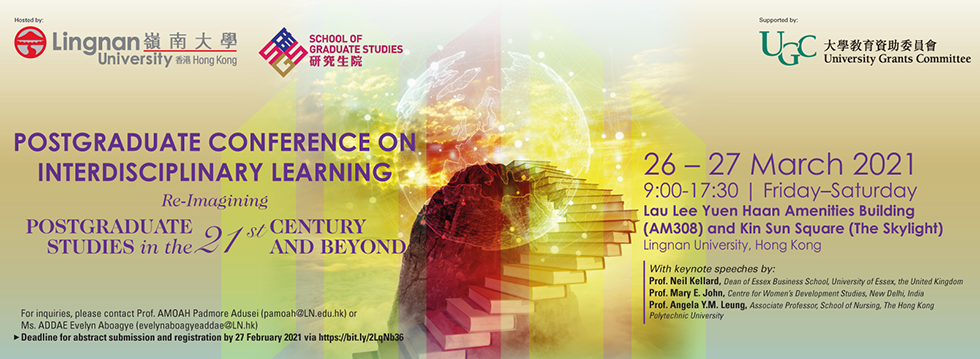
Sustainable development of higher education ‐ the comparison of satisfaction model between the cooperative‐running projects with the normal projects in Shenzhen
Start Date
27-3-2021 3:15 PM
End Date
27-3-2021 3:30 PM
Description
With the rapid expansion of higher education institutions, there are more and more cooperated institutions with abroad universities here in China in the form of an independent agency or a cooperative project. Particularly, with the policy initiatives in Guangdong-Hong Kong-Macau Greater Bay Area (GBA), the global and the cooperative projects in higher education will become more pervasive. As a pilot project on the provision of quasipublic goods through cooperative partnership within China, these cooperative-running projects are successful or may not relate to an exploration of establishing the globalisation circumstance and the further cooperative partnership with worldwide countries of China in the future. This study aims to investigate undergraduate students’ satisfaction on the domestic university and the cooperative-running university in three dimensions of the consumer behaviour theory: perceived price fairness, perceived quality and perceived value. We collect 800 samples in Shenzhen city which locates in the GBA, 400 sophomores each in the Chinese University of Hong Kong (Shenzhen) and in the Shenzhen University, respectively. In order to explore the improvement and further development direction, the university can get a glimpse of the demand and the satisfaction level of the students. Similarly, these cooperative-running projects can search out the paradigm of survival and development in this context. This study also provides useful information for the potential stakeholder to plan and draw appropriate strategies to develop and improve their cooperative-running projects in China. What’s more, it is beneficial for the sustainable development and globalisation of higher education in China.
Recommended Citation
Liang, A., & Wang, S. (2021, March). Sustainable development of higher education ‐ the comparison of satisfaction model between the cooperative‐running projects with the normal projects in Shenzhen. Presented at the Postgraduate Conference on Interdisciplinary Learning: Re-Imagining Postgraduate Studies in the 21st Century and Beyond. Lingnan University, Hong Kong.
Sustainable development of higher education ‐ the comparison of satisfaction model between the cooperative‐running projects with the normal projects in Shenzhen
With the rapid expansion of higher education institutions, there are more and more cooperated institutions with abroad universities here in China in the form of an independent agency or a cooperative project. Particularly, with the policy initiatives in Guangdong-Hong Kong-Macau Greater Bay Area (GBA), the global and the cooperative projects in higher education will become more pervasive. As a pilot project on the provision of quasipublic goods through cooperative partnership within China, these cooperative-running projects are successful or may not relate to an exploration of establishing the globalisation circumstance and the further cooperative partnership with worldwide countries of China in the future. This study aims to investigate undergraduate students’ satisfaction on the domestic university and the cooperative-running university in three dimensions of the consumer behaviour theory: perceived price fairness, perceived quality and perceived value. We collect 800 samples in Shenzhen city which locates in the GBA, 400 sophomores each in the Chinese University of Hong Kong (Shenzhen) and in the Shenzhen University, respectively. In order to explore the improvement and further development direction, the university can get a glimpse of the demand and the satisfaction level of the students. Similarly, these cooperative-running projects can search out the paradigm of survival and development in this context. This study also provides useful information for the potential stakeholder to plan and draw appropriate strategies to develop and improve their cooperative-running projects in China. What’s more, it is beneficial for the sustainable development and globalisation of higher education in China.

